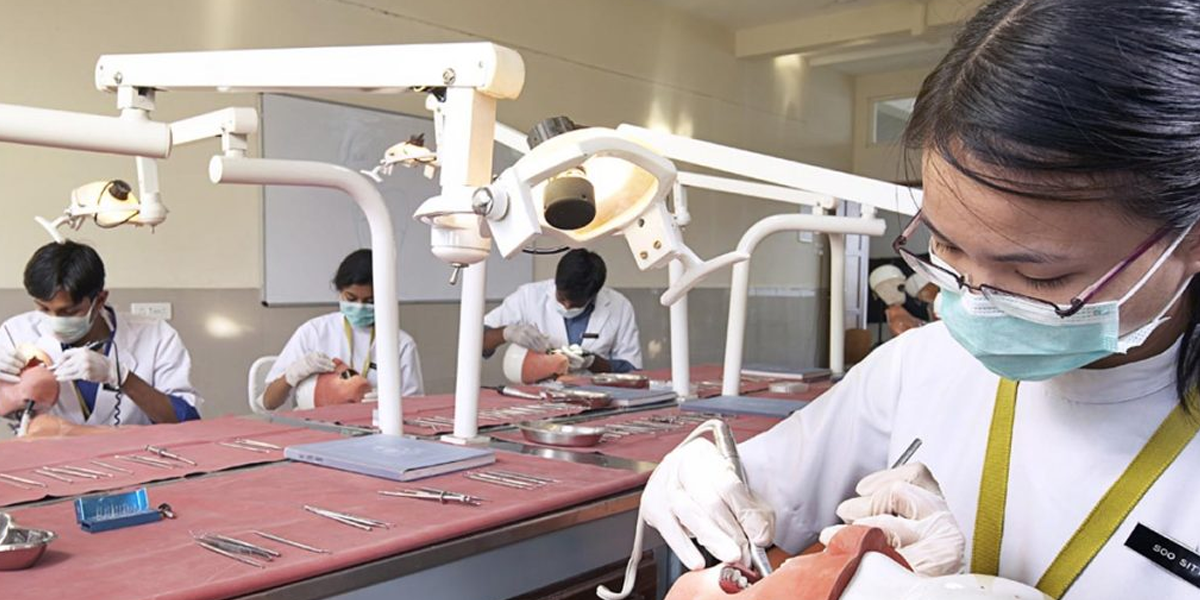
MDS Conservative Dentistry & Endodontics is a postgraduate degree program in dentistry that focuses on the prevention, diagnosis, and treatment of dental problems such as dental caries and dental trauma. The course is designed to provide students with an in-depth knowledge and clinical experience in the field of restorative and endodontic dentistry.
The program covers various subjects such as dental anatomy, dental materials, cavity preparation, dental radiology, and pulp therapy. It also covers advanced techniques such as endodontic treatment, root canal therapy, and advanced restorative procedures.
The duration of the MDS Conservative Dentistry & Endodontics course is three years, and the eligibility criteria for admission is a Bachelor of Dental Surgery (BDS) degree from a recognized dental college. The course is taught through a combination of lectures, clinical demonstrations, case discussions, and hands-on practical sessions.
After completing the course, graduates can work as dentists in private dental clinics, hospitals, and dental colleges. They can also pursue further research or academic careers in the field of Conservative Dentistry & Endodontics.
In summary, MDS Conservative Dentistry & Endodontics is a specialized postgraduate degree program in dentistry that provides students with advanced knowledge and practical skills in restorative and endodontic dentistry.
Click here if you want to know about course fees.
Eligibility:
The eligibility criteria for MDS Conservative Dentistry & Endodontics course is a Bachelor of Dental Surgery (BDS) degree from a recognized dental college. Additionally, candidates must have completed a one-year internship and have a valid score in the NEET MDS (National Eligibility cum Entrance Test for Master of Dental Surgery) conducted by the National Board of Examinations.
Duration:
The duration of the MDS Conservative Dentistry & Endodontics course is typically three years. During this period, students undergo rigorous training in various aspects of restorative and endodontic dentistry, including theoretical and practical coursework, clinical training, and research projects. After successfully completing the course, graduates can pursue careers in dental clinics, hospitals, or academia.
Event:
Didactic Training:
The MDS Conservative Dentistry & Endodontics course includes didactic training in various subjects such as dental anatomy, dental materials, cavity preparation, dental radiology, pulp therapy, endodontic treatment, and advanced restorative procedures. The didactic training is taught through a combination of lectures, case discussions, and hands-on practical sessions.
Technical Training:
The MDS Conservative Dentistry & Endodontics course provides technical training in various subjects such as dental anatomy, cavity preparation, root canal therapy, and advanced restorative procedures. The program emphasizes hands-on practical sessions, clinical demonstrations, and case discussions to equip students with advanced clinical skills in the field.
Clinical training:
Clinical training in MDS Conservative Dentistry & Endodontics course involves hands-on practical sessions where students get to apply theoretical knowledge in real-life scenarios. They gain experience in performing restorative and endodontic procedures, working with dental materials, and using advanced equipment. Clinical training is an essential part of the program that prepares students for a career in dentistry.
Examination:
The examination of MDS Conservative Dentistry & Endodontics course typically consists of both theoretical and practical components. Theoretical exams usually include written tests, essays, and oral exams, covering topics such as dental anatomy, restorative dentistry, and endodontics. Practical exams involve clinical evaluations, where students are assessed on their ability to perform procedures such as cavity preparations, root canal treatments, and restorative work.
In addition to these exams, students are also required to complete research projects, presentations, and case studies, which are evaluated by faculty members.
SUBJECT DISTRIBUTION AMONG 4 PAPERS IN VARIOUS SPECIALITIES :
BRANCH : CONSERVATIVE DENTISTRY AND ENDODONTICS :
1-2 Year:
3 Year
Career Prospective:
Here are some career prospects after completing an MDS Conservative Dentistry & Endodontics course:
Endodontist:
Specialize in treating dental pulp and performing root canal therapy.
Restorative Dentist:
Focus on the diagnosis, prevention, and treatment of dental problems like cavities, fractures, and wear.
Academician:
Work as faculty members in dental colleges or universities.
Researcher:
Conduct research in the field of Conservative Dentistry & Endodontics to advance knowledge and improve techniques.
Consultant:
Provide expert advice to other dental professionals on complex cases or treatment plans.
Government sector:
Graduates can apply for various job positions in government hospitals or public health departments, where they can work as dental surgeons or specialists. They can also participate in public health programs and dental camps, providing dental care to the underserved population.
Ph.D.:
After completing MDS Conservative Dentistry & Endodontics course, graduates have several opportunities in both academia and the government sector. One of the options is pursuing a PhD in dentistry, which can lead to research or academic careers in the field of Conservative Dentistry & Endodontics. Graduates can also work as professors or researchers in dental colleges or universities.
They can also choose to start their own dental practice or work as a consultant in a specialized clinic. The demand for skilled dental professionals is increasing, making this an excellent time to pursue a career in this field.
>